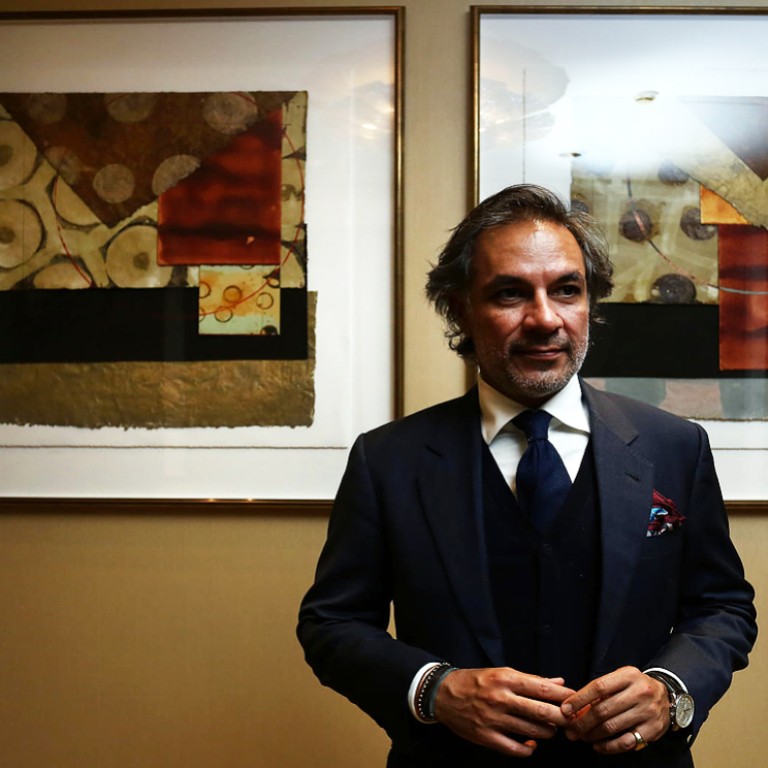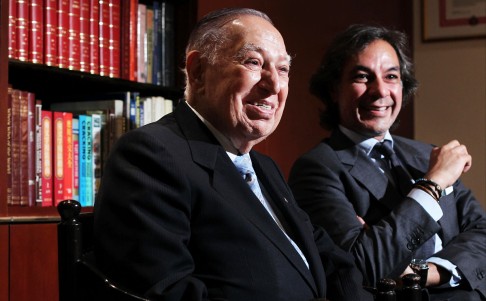
Hotelier Aron Harilela urges true reform in Hong Kong
Prominent hotelier Aron Harilela believes HK needs to go deeper than the social issues to resolve its political difficulties and regain competitiveness
Hong Kong is badly in need of constitutional reform and its political difficulties are an Achilles' heel for global competitiveness, prominent hotelier Aron Harilela says.
"We have a systemic problem. There's no question about it and it needs wholehearted reform," the chairman and chief executive of the Harilela Group told the . "I think the government should take into account that the people want solutions not just in housing or a cry for a mandate. It has to be deeper than that."
In an interview with the in 2013, the hotelier spoke about the disenfranchisement arising from the lack of political representation and difficulty in securing jobs and homes. Now, post-Occupy Central and on the heels of another democracy rally last Sunday, he says the problem has only stagnated and is a serious cause for concern.
"I wear a couple of hats. One, my postgraduate was in political philosophy so it's very close to my heart," Harilela says. "Obviously, I'm a businessman and I also have to see that part of the disenfranchisement. It worries me in Hong Kong, it really does. I have been saying this for a few years. Occupy Central was a manifestation of that. There are a lot of different elements and we need to take control of them, which are constitutional reform, social mobility, economic mobility.
"Young students need to have a chance … the administration has to realise these students are their citizens. It should take into account their wishes.
"Decisions are taking a long time to be made. One of the biggest impediments for growth for entrepreneurship is just inaction. I was asked earlier, 'do you ever rescind your decisions?' Actually not very often, but if the people I work with tell me to change my decision, I'm happy to. Usually I make decisions very quickly and hardly ever change it, but you need to get moving. The Hong Kong situation is stagnant. Stagnancy is just the destroyer of economics and mobility."

"I think, in terms of the way I've done business, [my father's passing] hasn't changed anything," Harilela says. "One of the great things is that I had the chance to work with my father for 19 years. Hopefully I've learned some good lessons from him and he's got rid of some of my bad habits. He certainly was a man with a lot of experience."
The elder Harilela, a businessman who weathered wars and economic depressions, is often held up as an example of the Hong Kong can-do attitude and an inspiring rags-to-riches story.
Among Hong Kong's old families, the Harilelas are a rare, if not lone, clan that does not have their main business dealings tied up on the mainland. Among their 19-hotel portfolio, only one is on the mainland.
"I think it's for no other reason than that we're a private company. It wasn't a decision not to go into China, but we expanded elsewhere before China opened. We were consolidating in that period. It wasn't a decision to or not to," Harilela explains. "We've had a little bit of difficulty in dealing with China. We decided that Hong Kong has really benefited us from the 1960s, even before that from the 1930s … We don't have to be there."
The group is in the process of tearing down a building in Wan Chai with plans to build a hotel that will open doors in 2017.
"It is on Lockhart Road. Hopefully we'll start building by the end of the year. It will be a nice-looking hotel," Harilela says, although he adds the concept has not been fully fleshed out yet.
Despite the recent deceleration in Hong Kong's retail sector, having just recorded the lowest monthly sales number since the severe acute respiratory syndrome days in 2003, he brushes aside any notion that the city may lose out to Macau as a retail hub as casino resorts open up more shopping and entertainment options.
"People have been asking me whether Singapore or Shanghai will overtake Hong Kong since the 1980s," he says. "It's as if I were to go to New York versus Chicago. I wouldn't say Chicago is like Macau but Macau is a different animal. I don't think retail sales there are that spectacular because it's predominantly a gaming city … If you come to Hong Kong, you come for the restaurants, the buzz, for business and you can do a lot more shopping here."
